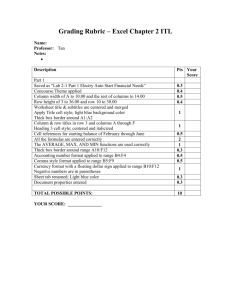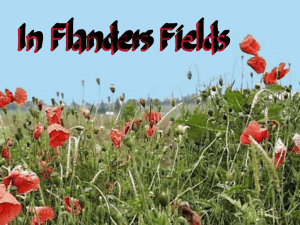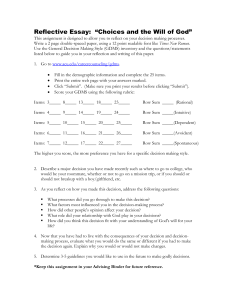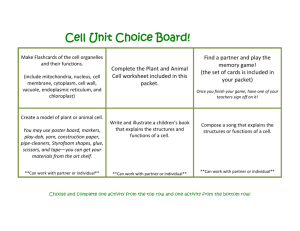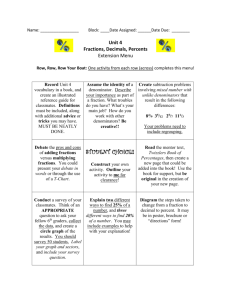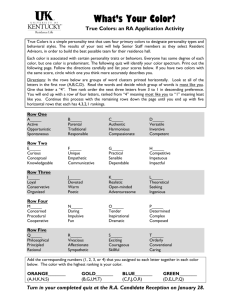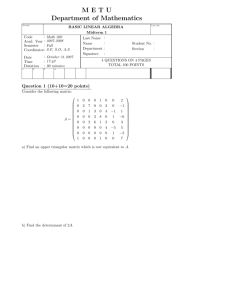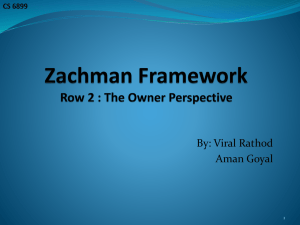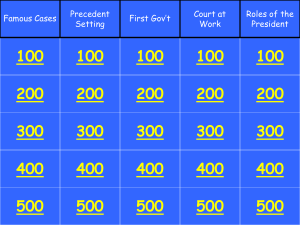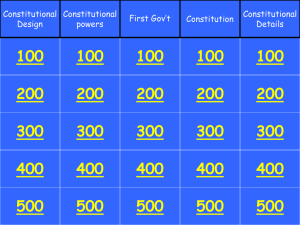chapter 10 memory notes
advertisement
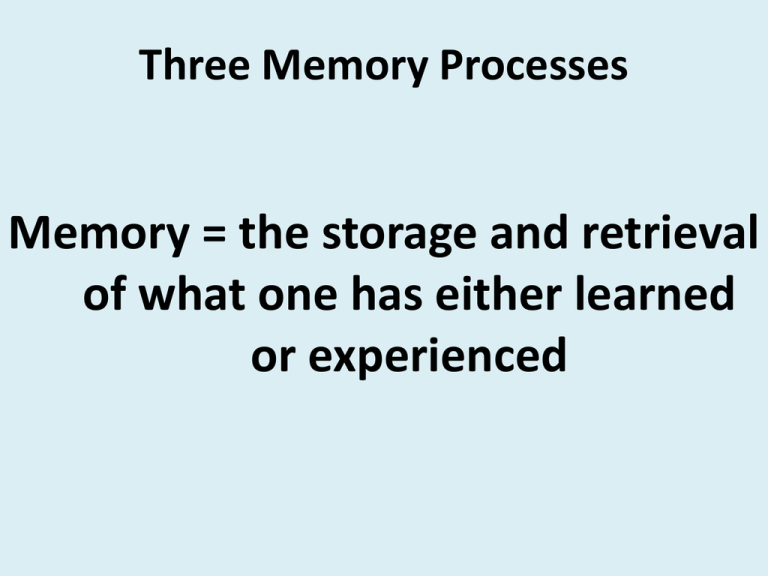
Three Memory Processes Memory = the storage and retrieval of what one has either learned or experienced 1. Encoding Transformation of information so the nervous system can process it Types of codes: 1. Acoustic 2. Visual 3. Semantic 2. Storage The process by which we remember material acquired over a period of time. 3. Retrieval The process of obtaining information from storage. What is Memory Retrieval? • The process of accessing stored information and making it available to our consciousness • Some memories are retrieved easily • Context-dependent memory effect Memory Stages 1. Sensory Memory • Sight • Hearing • Taste • Etc. Sensory Memory (cont.) • The storage system that holds memory of sensory impressions is short-lived • Iconic(visual) memory, eidetic(photographic) imagery, echoic(auditory) memory 2. Short-Term Memory (STM) Allows for the brief retention of newly acquired information, usually for a maximum of 30 seconds George Miller’s Study • Magic 7 - Discovered that the STM capacity was 7(+ or – 2) • Examples of magic 7 7 Wonders of the world 7 dwarfs Chunking • The process of breaking down a large amount of information into smaller chunks • Chunking makes recall easier A Simple Test • • • • • • • Row 1 Row 2 Row 3 Row 4 Row 5 Row 6 Row 7 2937 78541 821374 3820961 18294624 9284619384 1992199319941995 Long-Term Memory • The storage of information over an extended time • Information in long-term memory is organized by categories or features Types of Long-Term Memory • Semantic Memory • Knowledge of language, including its rules, words, and meanings • Semantic memory is not imprinted on our brains Episodic Memory • Memories of one’s own life (also includes the time experiences occurred) • Like a personal diary Declarative Memory • Holds knowledge that can be called forth consciously as needed • “What” and “that” Procedural Memory • Memory of learned skills that do not require conscious recollection • We gradually lose the ability to describe what we are doing when we perform these skills
